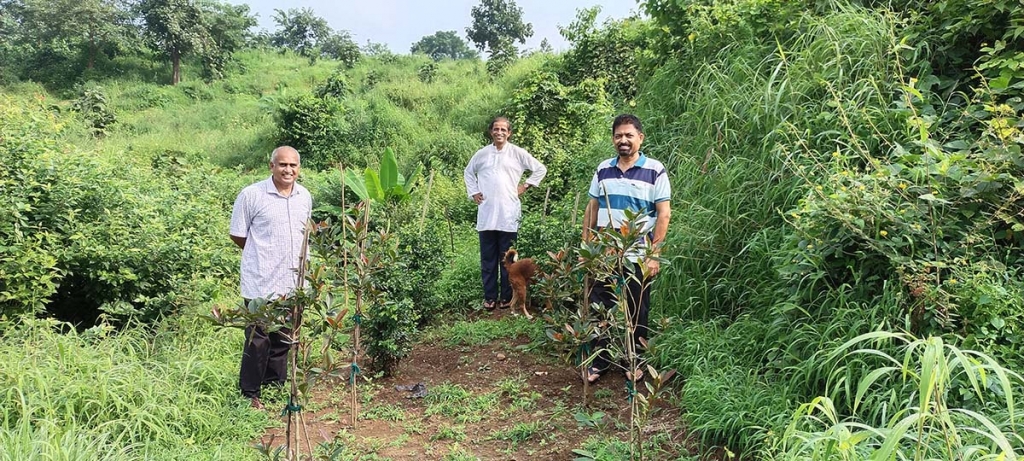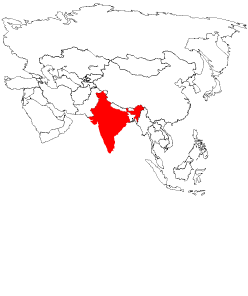INDIA: Campus aims to be educational model for ecology

Don Bosco Youth Institute cultivates land for fruit trees, spices and medicinal plants
(MissionNewswire) Salesian missionaries with Don Bosco Youth Institute in Karjat, India, have cultivated land and planted fruit trees, spices and medicinal plants. Don Bosco Youth Institute, a skills training center for poor youth, is located on a 67-acre property. Most of this property is hilly terrain, which has patches of thorny bushes that often catch fire during the hot summer season. For several years, this property was left unused and barren.
All activities had come to a stop at Don Bosco Youth Institute during the COVID-19 lockdowns. With no students in the workshops or the hostel, the Salesian community decided it was time to do something productive with the land.
To raise funds for the project, Salesian missionaries launched the “Care for Creation – I will plant a forest” campaign and invited donors to sponsor a plant. In return, Salesians offered them free camping facilities for two days, which the donor and their families could use twice a year for three years.
Several donors came forward and dedicated large areas of the land to their loved ones. As a result, Salesians have created a flower valley, consisting of 33 varieties of flowering plants, and two mini forests with nearly all of the Indigenous trees from the region. The property also provides employment for a few people from the local tribal villages. To date, there are 7,323 trees planted including fruit trees, forest trees, spice plants, bamboo and flowering plants. Salesians aim to reach 10,000.
“Planting more than 7,000 trees has been a significant achievement and a fulfilling experience for us,” said Father Anthony Santarita from Don Bosco Youth Institute. “We want to make our campus into an educational model for ecology, as recommended by the Rector Major in his GC 28 Post-Chapter Reflection.”
Salesian programs across India are primarily focused on education. Salesian primary and secondary education helps youth prepare for later technical, vocational or university study. Other programs help to support poor youth and their families by meeting the basic needs of shelter, proper nutrition and medical care.
Access to professional training and workforce development services is highly valued by youth in India. The country, which is home to 1.34 billion people (18 percent of the world’s population), will have overtaken China as the world’s most populous country by 2024, according to the World Economic Forum. While India has the world’s largest youth population, it has yet to capitalize on this, leaving some 30 percent of this population without employment, education or training.
India has the world’s fourth-largest economy but more than 22 percent of the country lives in poverty. About 31 percent of the world’s multidimensionally poor children live in India, according to a report by the Oxford Poverty and Human Development Initiative. A multidimensionally poor child is one who lacks at least one-third of 10 indicators, grouped into three dimensions of poverty: health, education and standard of living.
###
Sources:
ANS Photo (usage permissions and guidelines must be requested from ANS)
ANS – India – Green Venture by Don Bosco Youth Institute
Salesian Missions – India
World Bank – India





